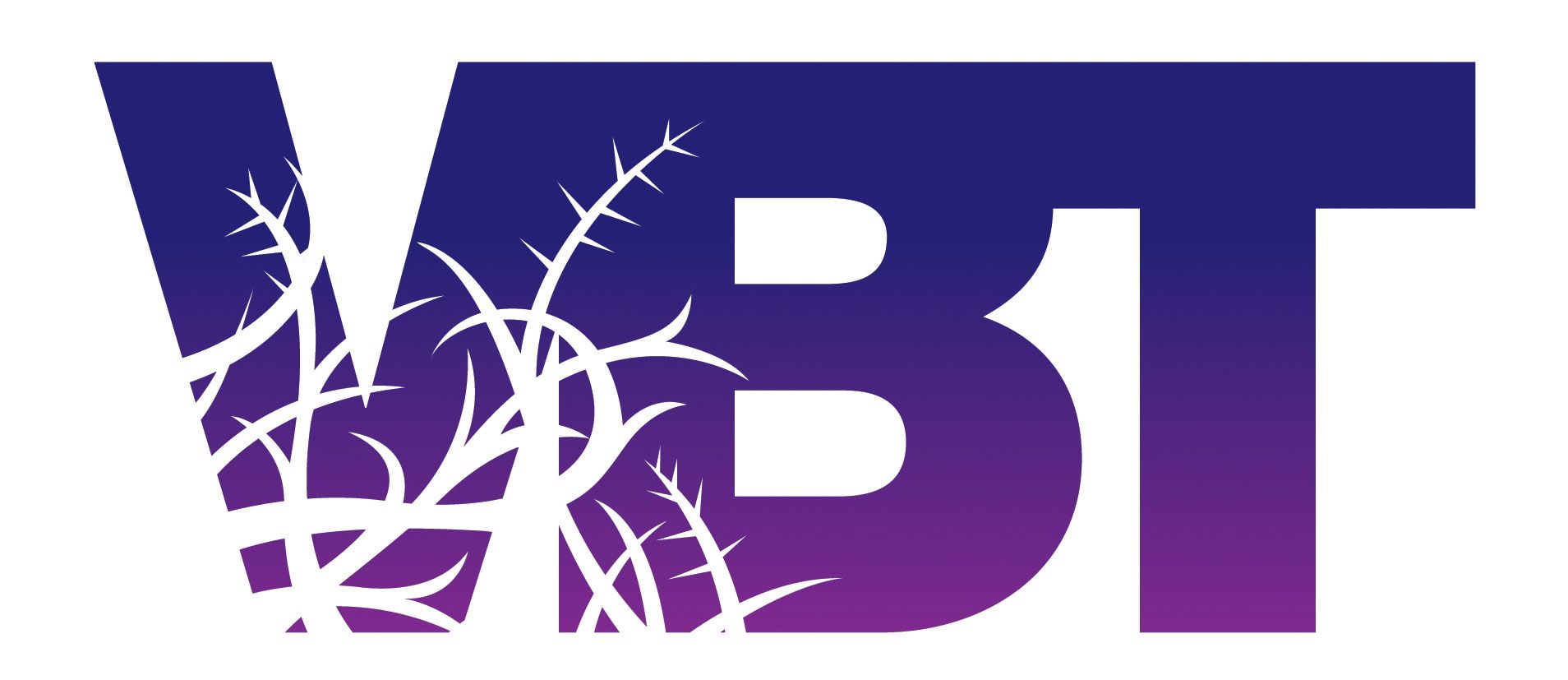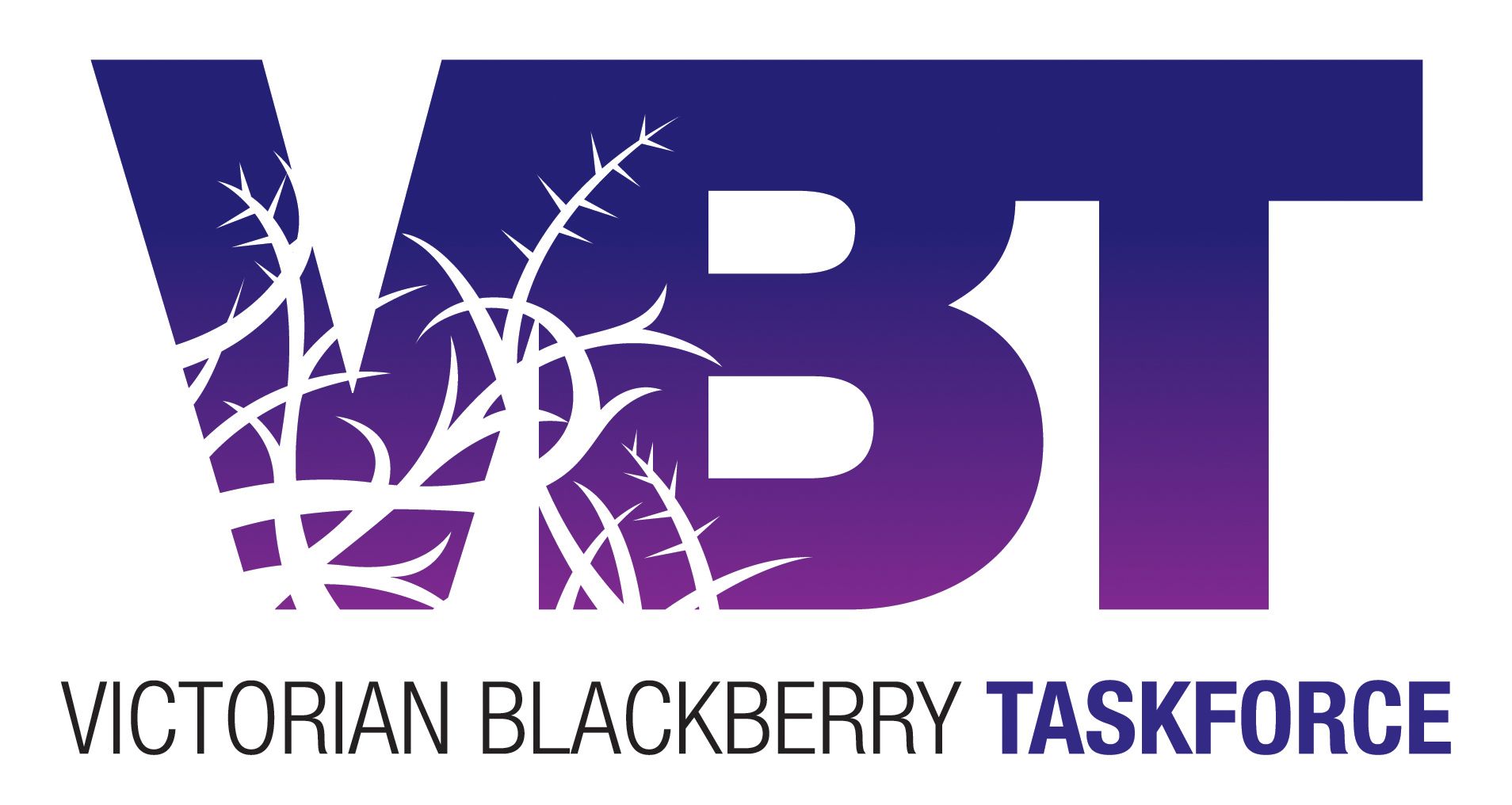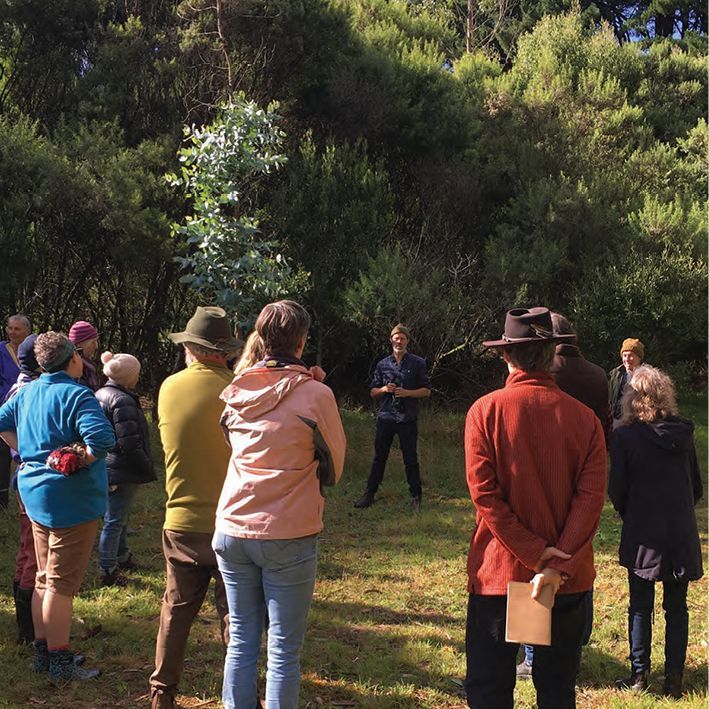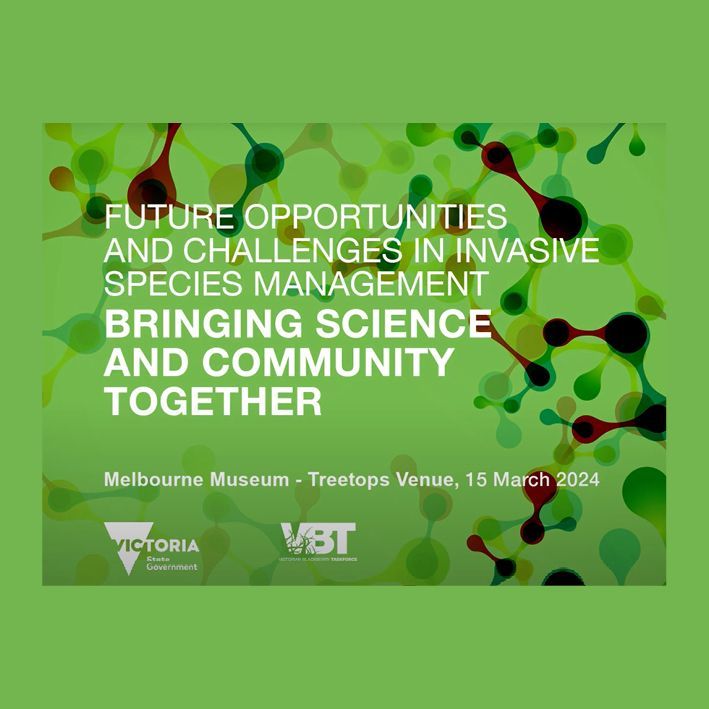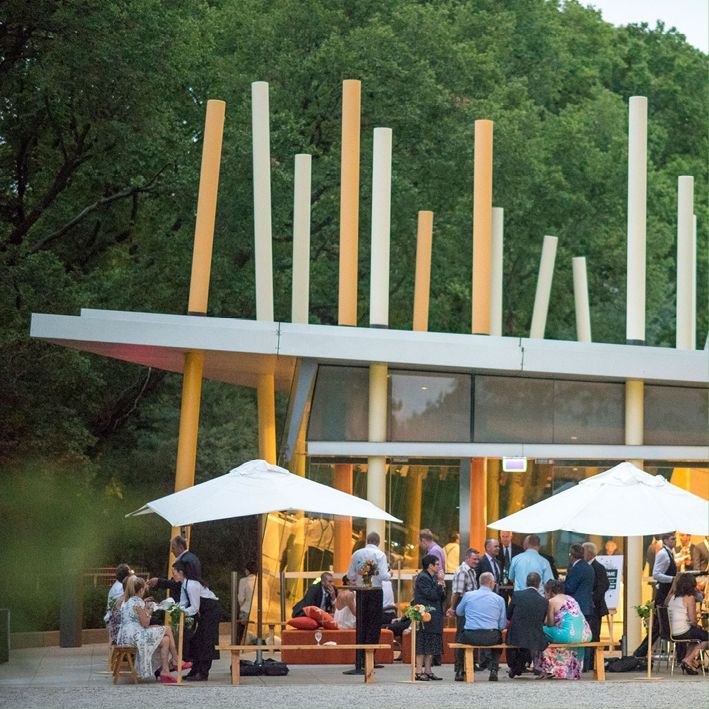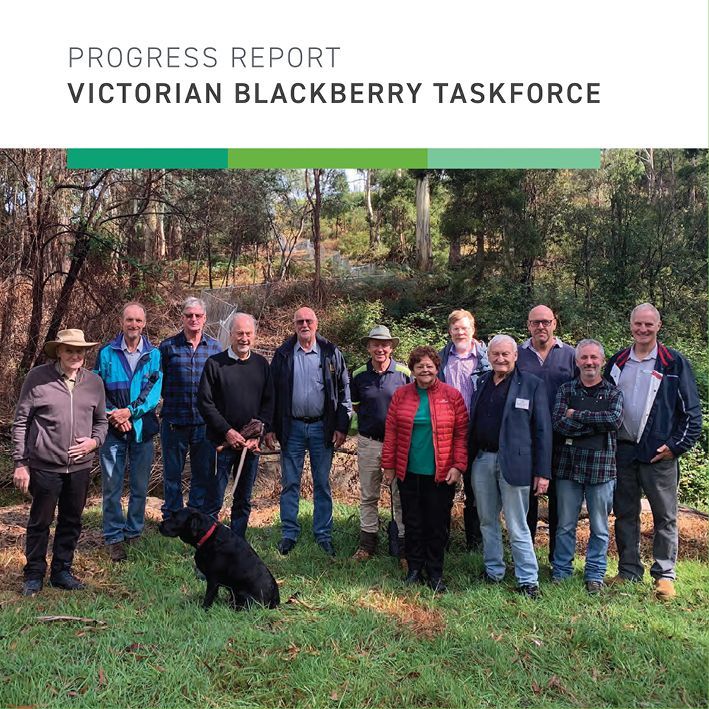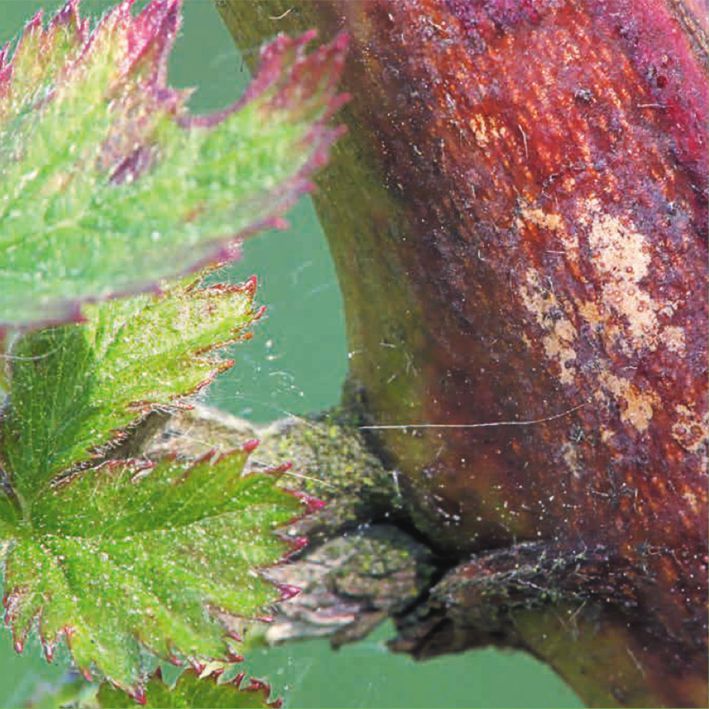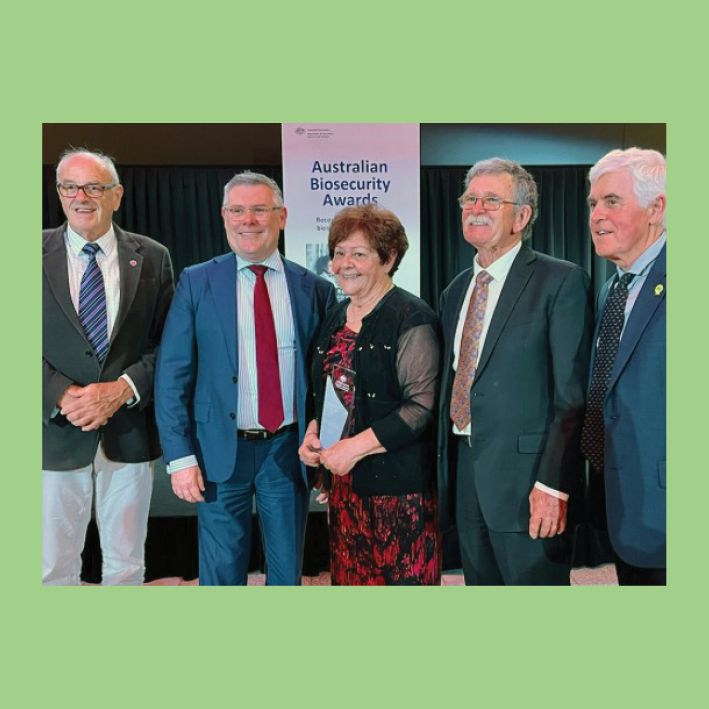VBT News
Upcoming Event
Mornington Peninsula Farmers
Talk and demonstration: Saturday 4th October 2025
You are invited to our next MP farmer discussion with
The Victorian Blackberry Taskforce (VBT) and Seeds Bushland Restoration at Tanglewood Estate.
Talking to us is Dr Robin Adair, a Victorian Blackberry Taskforce member, who will discuss blackberry management on farms and the latest blackberry policy and news, as well as provide a demonstration of spray techniques (using water) and using drones. We also have Anton Vigenser, the Operations Manager from Seeds, who will be talking about a range of other weeds on farms and recommended management approaches. This talk is relevant to all farmers as well as urban interface landholders and owners of bush blocks.
Where: Saturday 4th October 2025
When: 9.30am - 10.00am: arrivals and introductions, morning tea
Time: 10.00am - 12.30pm: talks and demonstration followed by a light lunch.
Please RSVP by Thursday the 2nd of October, download the flyer for further contact details.
June 2024
The Quarry Project
Melbourne-based academics Joseph Noster and Millie Cattlin were looking for a damaged site that needed caretaking and rehabilitation.
In 2015 they found The Quarry – a sandstone quarry in Beech Forest that had been operating since the 1800s.
Prior to it being a quarry, First Nations Gadubanud people had a long history in the area, including tracks that accessed a permanent spring, which is still an important feature of the site.
The couple run a design and architecture practice and have created a collaborative experimental education space for groups of university students at The Quarry.
They also manage extensive blackberry that dominates the 20-acre site, fed by high rainfall.
April 2024
Future opportunities and challenges
Future opportunities and challenges in invasive species management – Bringing Science and Community Together
Want to catch up on the latest from leading scientists, government and community about the impact and control of invasive species, and more importantly, what is on the horizon in innovative research?
Then it’s a good time to view the presentations delivered at our recent forum:
Future opportunities and challenges in invasive species management – Bringing Science and Community Together:
March 2024
Bringing science and community together.
15 March 2024, 9am-3pm
Melbourne Museum – Tree Tops Venue
This is an opportunity to hear from leading scientists, government and community about the impact and control of invasive species, and more importantly, what is on the horizon in innovative research?
The Victorian Blackberry Taskforce has brought together expert speakers from the University of Melbourne, Curtin University, Deakin University, Agriculture Victoria, Department of Agriculture, Fisheries and Forestry and the Victorian Blackberry Taskforce.
RSVP essential, including dietary requirements: 5 March 2024
Registration using Eventbrite
Funded by Victorian State Government.
June 2024
VBT Progress Report 2023
The VBT has a focus on upgrading online resources to support communities and individuals to decide the best options for treatment of blackberries on their properties.
Facebook posts, case studies, Community Service Announcements, television campaigns, demonstration days and maintaining a service of timely responses to emails and phone enquiries has enabled us to stay in touch with our community and assist with their blackberry control queries.
New technology, organic treatments, physical control methods and traditional herbicide treatments are showcased at demonstration sessions held across Victoria.
View and download a copy of the VBT Progress Report 2023.
December 2024
How do we achieve effective biological control of invasive European Blackberry?
Dr Robin Adair, Australis Biological & Dr Rae Kwong, Biocontrol Scientist, DEECA
In Australia, invasive European blackberry consists of a complex of around 18 recognised species and a range of hybrids, which collectively are amalgamated into Rubus fruticosus sp. agg.
The first introductions to Australia were made for pragmatic and sentimental reasons by our early colonisers, but the species quickly naturalised and spread more aggressively than perhaps they ever envisioned.
Now European blackberry is one of Australia’s
worst environmental and agricultural weeds where substantial losses of biodiversity and production occur.
The vast extent of infestations across southern Australia and lack of access to many areas restricts conventional control methods, which has precipitated the acceptance and development of classical biological control.
This control method utilises natural enemies collected from the region of origin of blackberry (Europe) for suppression of the host plant in areas where it is problematic (Australia).
View and download the full article:
How do we achieve effective biological control of invasive European Blackberry?
May 2023
Australian Biosecurity Awards.
Victoria’s four Community Pest Management Groups (CPMGs) have been chosen to receive the Australian Biosecurity Award (ABA) in Canberra recently.
The ABA’s recognise individuals, groups and organisations that have shown commitment to supporting and promoting Australian biosecurity and the systems that underpin it.
The CPMGs were nominated by Agriculture Victoria to receive an award under the community category for their role in the Weeds and Rabbits Project. The four CPMG Chairs recently received their award on behalf of their groups in Canberra.
The CPMGs include the Victorian Blackberry Taskforce, the Victorian Gorse Taskforce, Victorian Rabbit Action Network and Victorian Serrated Tussock Working Party who formed part of the Delivery Leadership Group, the project steering committee for the Weeds and Rabbit Project.
CPMGs consist of volunteer community representatives, and contractors, who provide education, engagement and extension services to landowners affected by invasive species.
For further information on the Weeds and Rabbits Project click here.
PHOTO L-R: Ron Cosgrave – VGT Chair, Murray Watt – Minister for Agriculture, Fisheries and Forestry, Lyn Coulston – VBT Chair, Gerry Leach – VRAN Chair and Lance Jennison – VSTWP Chair.
